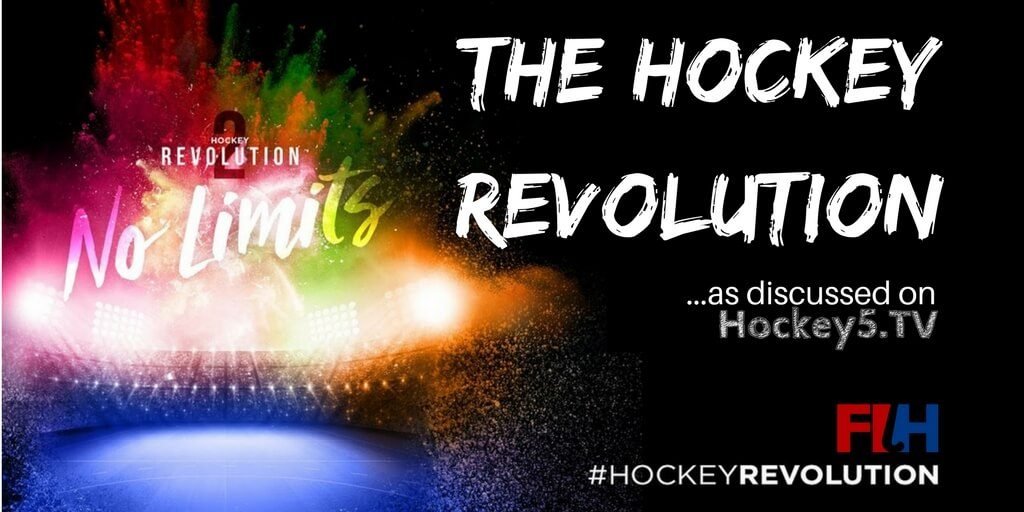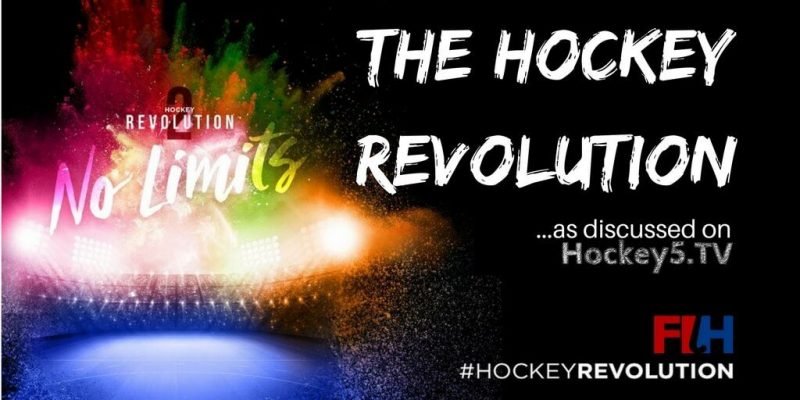 FIH launched the Hockey Revolution some time ago and in recent blogs we talked about several of it’s components already. Last Monday we decided to talk directly to the new CEO of FIH, Jason McCracken and a president of one of the European federations, Marc Coudron from Belgium about this hockey revolution. Hockey5.TV is our format for short, online and informal talkshow about hockey, so we invited the both of them to discuss “The Future of Hockey”.
FIH launched the Hockey Revolution some time ago and in recent blogs we talked about several of it’s components already. Last Monday we decided to talk directly to the new CEO of FIH, Jason McCracken and a president of one of the European federations, Marc Coudron from Belgium about this hockey revolution. Hockey5.TV is our format for short, online and informal talkshow about hockey, so we invited the both of them to discuss “The Future of Hockey”.
If you haven’t already you might want to read our previous blogs from this year : “Money Time for Hockey” , “Adapt or Die” and “To change or not to change, that is the question“.
International vs domestic leagues
One of the first issues we addressed was the management of hockey calendars for international events versus domestic leagues as we know them in Europe. By now most of you will have heard about the plans for a new Home & Away League, which still is just a working title. The real name, brand and participants of this new event will be announced just before the World League in London (June 2017). All concerned by the typical European style club competitions are worried this change might effect our traditional competition and add extra stress to the hockey calendar.
The first reassuring news we got from McCracken, CEO at FIH, was the Hockey India League (HIL) would not move to September or October. This had been suggested by it’s president Batra, who also is the new president for the FIH by the way, in an interview with the English Hockeynewspaper.co.uk . The HIL will move as of 2019 to the end of November or early December which will be less of a nuisance for European club leagues. Furthermore they believe there is room for both international and domestic leagues. They will allow national squads of 32 players to allow national team coaches more flexibility in aligning teams for the Home & Away League when it conflicts with domestic or other leagues such as the EHL. Also they will set up a league management panel for this new international event where national associations will have a say to make sure the calendars remain fair to all.
How about the EHL in this Hockey Revolution?
Will there also be room in the calendar for our beloved EHL? Let’s not forget the Euro Hockey League or EHL was “invented” some 10 years ago now and has brought us many innovations the game of hockey has embraced. Think video referrals or even better the self pass… So will we have still have room in the calendar for this EHL in the future we asked Marc Coudron, president for the Belgian hockey federation but also board member at the FIH.
Coudron seems convinced we will find the solutions to also keep the EHL on the agenda. Important because not everybody get’s to play at an international level for their country so for most players in top clubs, participating in the EHL is the biggest dream and goal to achieve. With a clear and know calendar for many years ahead it will be possible to schedule in all events according to Coudron.
5 vs 5 or 11 vs 11
The FIH has been testing a new format of 5 vs 5 during recent Youth Olympic Games among other events. So we asked them if the traditionalists among the hockey community should fear the 11 vs 11 game would be replaced by this new 5 vs 5 format?
So for now the 5 vs 5 will only be used to introduce hockey in countries with less or no hockey tradition or with less means to maintain full national teams. The main events, such as Olympic Games, World Cup and the new Home & Away League will keep the traditional 11 vs 11 format…. At least for the short to medium term. No guarantees were made for after Tokyo! So this traditionalist still fears the Hockey Fives might eventually replace our game as we know it.
Even though the hockey revolution at the Rio Games brought us some reassuring news regarding the Olympic status of hockey….
Hockey moved up to 3rd place in Rio
Hockey got some major warnings after the London Games in 2012. It had one of the best attendance records in the stands, but our game came in last (!) of all Olympic sports in digital presence. We were told how a sport scored on social media and in the new digital environment was going to be a key factor to determine it’s Olympic future…
So the progress our sport made between London and Rio can only be described as amazing. From last to a third rank behind the major global sports of football and athletics. So now all that remains as remarks coming from IOC is we still have too many people in our teams, over populating Olympic villages. And secondly we still produce not enough medals, just the one for men and one for women. The IOC seems to prefer sports who can hand out more medals in a shorter amount of time and with smaller teams… But the good news is we scored big on digital presence this time!
Will there be more new rules?
So we will have to keep reinventing hockey said McCracken to stay ahead of the game. EHL brought us many new rules and the HIL has been testing things like 2 points for field goals and only 1 for penalty corners. Will new rules such as these be introduced to global hockey we asked…
Other sports are amazed at our our innovations. EHL and HIL will continue to be incubators for new ideas before these innovations will come to global hockey. We need to continue to push our game forwards said McCracken.
The Future of Hockey
Want to take some time out of your day to hear about all of this? The watch the entire talkshow from last Monday (some 45 minutes or so) in the video below… Enjoy !
But if you prefer it short and sweet… we asked McCracken what was the vision the FIH had for the future of hockey. Where do you see hockey in 20 years time?
It came down to : a global game to inspire a generation!
Let’s make this game marketable, let’s have our athletes making a career and earning an income. Let’s have young kids who want to pick up a stick and be a part of this revolution…
So will you join the Hockey Revolution?

